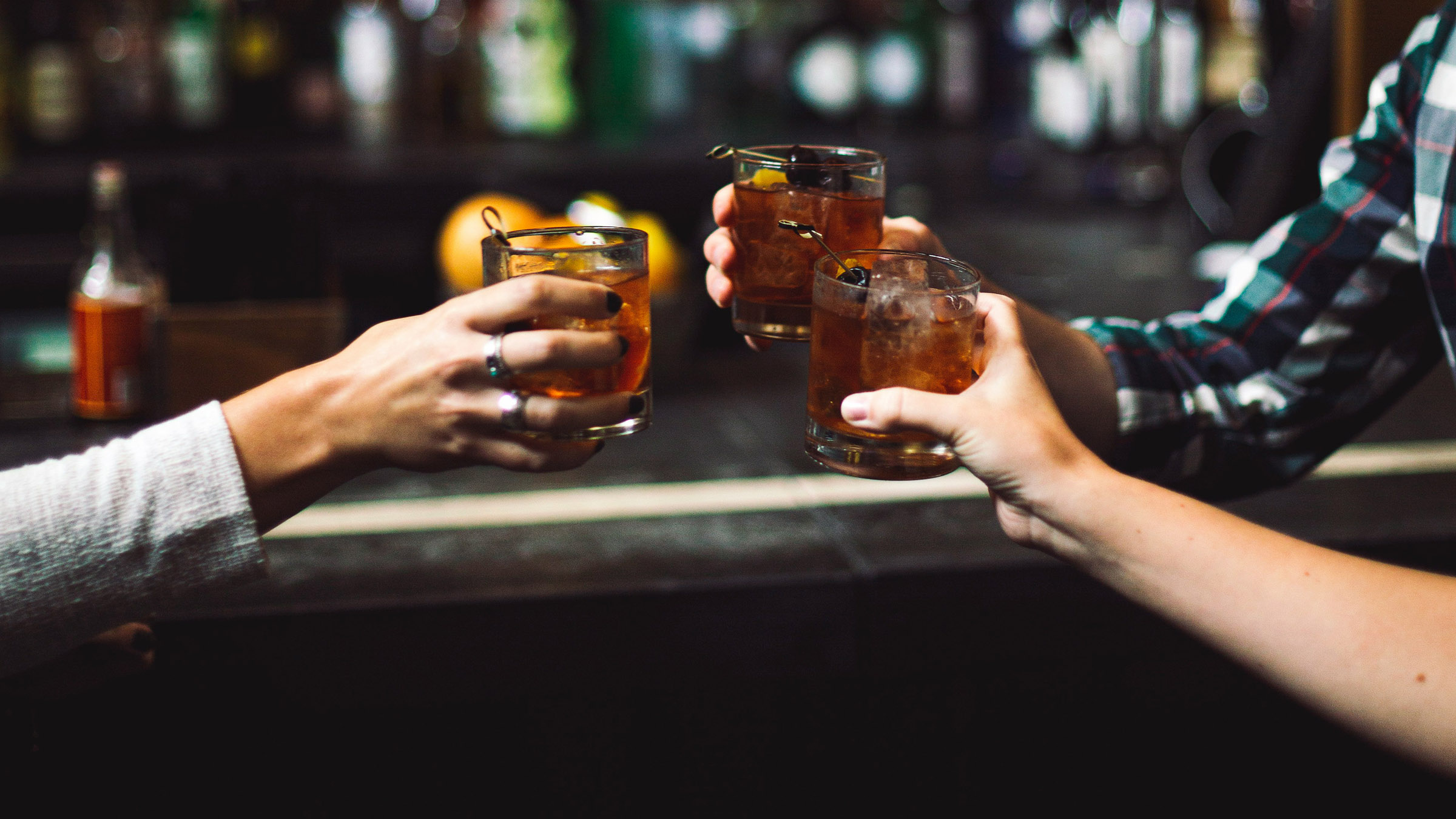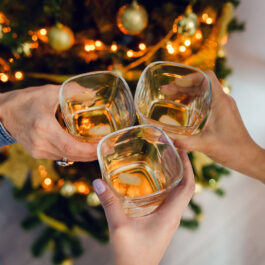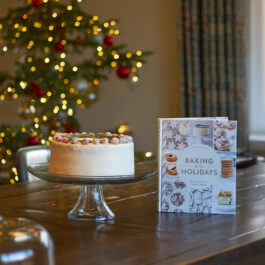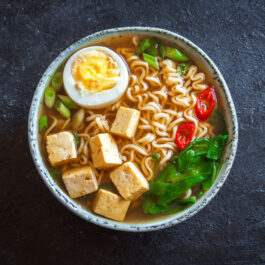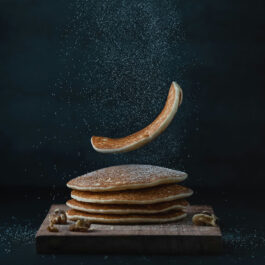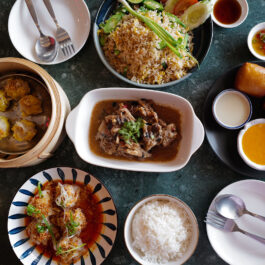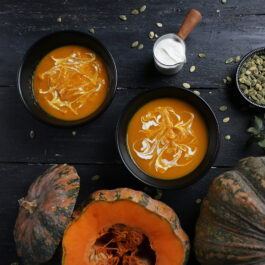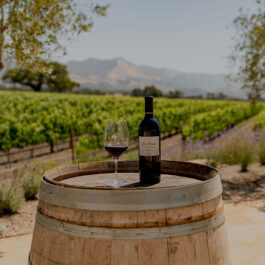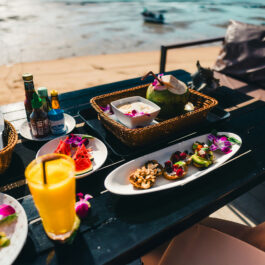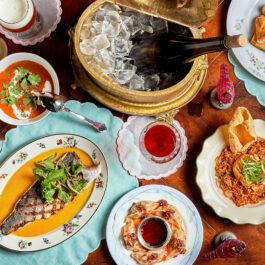An imam, a pregnant person and a recovering alcoholic walk into a bar… what sounds like the setup to a strangely specific dad joke is, in fact, an increasingly realistic scenario in a growing number of sophisticated sober bars around the world.
Dry bars, as they are also known, offer different things to different people. For those who steer clear of alcohol to avoid temptation, they’re spaces in which to enjoy the sociable aspect of a night out without the danger of a relapse. For people who don’t drink for moral or religious reasons, they’re a place to mingle at a safe distance from what they consider the vices of intoxication. For perhaps the largest target group, who limit their alcohol intake for a variety of health reasons, they’re the perfect place to host a baby shower, ring in a detox or raise a glass to Dry January.
What’s new about today’s zero-ABV establishments is the positive attitude. Unlike the proverbial pub with no beer, these are not sad, lonely spaces lacking a key ingredient. They are a legitimate “Third Place” – a location outside the home and the workplace, designed to facilitate social connections.
The history of sober bars goes back to the temperance movement of the late 19th century. Backed primarily by religious organisations, they promoted abstinence and offered an alternative to pint-fuelled socialising at the pub. One of the world’s first temperance bars, Mr. Fitzpatrick’s in Lancashire, northern England, still operates today. Once part of a chain established by Irish immigrants, it was run as a family business for almost 100 years. The new owners reopened it as a family-friendly (alcohol-free) cafe and eatery, also selling cordials with fruit, botanical extracts and aromatic spices under the storied name.
Contemporary takes on the concept often have a decidedly more grown-up approach, from dive bar to speakeasy, live club to cocktail lounge, cosy pub to sober rave. At Hekate Café & Elixir Lounge in New York, customers come for the supernatural events, stay for the non-alcoholic drinks, and return for the friendly atmosphere. The drinks menu changes with the seasons, but an Old Fashioned featuring the bar’s signature I.C.B.I.N.W. (I Can’t Believe It’s Not Whiskey) blend is always a solid choice. The venue also operates a (non-)liquor store, so you can take your favourite beverage home.
View this post on Instagram
View this post on Instagram
On the other side of the globe, Tokyo’s Low-Non Bar is an elegant evening venue for a stylish sober night out. This stunning cocktail bar uses homemade, fermented, organic and seasonal ingredients, amongst others, in flavoursome creations like the Umami Virgin Mary (with shiitake tea) or the Japanese-Italian Punch (featuring shiso). They recently released a de-alcoholised gin, as well as a range of cordials.
Non-drinkers looking for a slightly less genteel night out can take their pick of sober raves. A trend that originated in London, these events see crowds congregate in the early hours of the day or evening to get high on nothing but the music. Some, like Morning Gloryville – billed as “conscious clubbing” – include massages, yoga and reiki, served with a side of organic coffee and smoothies. Others, like House of Happiness, take a less esoteric approach, focused entirely on danceable tunes, glitter and a fully stocked alcohol-free bar.
Even Munich, famous for its traditional beer fest, beer halls and beer gardens, has experimented with alcohol-free hospitality. The city’s first zero-proof beer garden opened (as a pop-up) in the summer of 2024; Die Null, German for ‘zero’, proved that you don’t need booze to create an atmosphere of Gemütlichkeit. Speaking of beer, Germans are actually the world’s biggest consumers of the non-alcoholic variety – and its improving quality is further fuel for that trend.
この投稿をInstagramで見る
View this post on Instagram
A far cry from the watery zero-proof beers and sickly sweet mocktails of yore, today’s zero-ABV drinks can be anything you want them to be. Even in regular boozy bars, designated drivers now often have a choice between several craft beers, sometimes even wines, and expertly mixed cocktails featuring tart sodas, tangy shrubs, homemade fruit extracts, herb infusions and bitters. Depending on how strict they are about abstaining, non-drinkers can also enjoy beverages with mood- and consciousness-altering ingredients ranging from nootropics (such as caffeine and certain vitamins) and adaptogens (active ingredients extracted from plants and mushrooms) to THC or CBD (laws permitting).
Establishments that eschew alcohol altogether offer more than just a different selection of drinks; they offer a different experience. However, they also face a different set of challenges. For every local news story celebrating the opening of a sober bar, there’s one lamenting the closing of another one. Failed dry publicans agree that demand for their concept is high but inconsistent – after a busy Dry January, the number of patrons peters out. Guests consume fewer drinks over the course of a night out, and those who usually drink are more likely to complain about the price of a non-alcoholic tipple.
Anecdotally, people seem to be drinking less in general, and Gen Z in particular are less set on booze as a fixed element of their social lives. While some data supports this perceived sea change, other numbers suggest that alcohol consumption is on the rise again after a decrease during the COVID-19 pandemic. While teetotalism may not be on the rise overall, several trends are fuelling the demand for sober alternatives.
View this post on Instagram
View this post on Instagram
Mindful drinking is a movement that advocates conscious consumption rather than habitual boozing or binge drinking. Mindful drinkers enjoy the odd drink but won’t automatically order an alcoholic beverage just because everyone else is doing it. They consider the impact liquor will have on their state of mind and its after-effects on their body – and sometimes they decide it’s worth it. The sober curious movement is similar, although it seems more oriented towards an end goal of sobriety. Finally, there’s the ‘California sober’ label applied to people who don’t drink yet indulge in any number of legal or illegal drugs, like cannabis or magic mushrooms, as well as experimenting with the consciousness-altering effect of adaptogens.
What these groups all have in common is that they don’t necessarily need an entirely sober space. In fact, several successful venues that first opened as dry bars have since adapted their concept to reflect this flexibility. Some – like The Virgin Mary in Dublin, Ireland’s first alcohol-free bar from 2019-2023, or New York’s Listen Bar – now operate as pop-ups or collaborations. Others, like The Lucky Saint in London, strongly emphasise zero-proof beverages while also serving regular boozy drinks. Rumours, a speakeasy-style bar in Lisbon, offers a B.Y.O.B. experience. The mixologist creates bespoke cocktails based on the spirits customers provide, and if you don’t bring your own, he will come up with non-alcoholic drinks.
Whether in dedicated establishments, on the menu of your local pub or at an ambitious cocktail bar, the trend continues apace: publicans and mixologists are experimenting with and elevating alcohol-free beverages; producers are providing them with a wider range of premium ingredients; patrons wishing to enjoy the social buzz of a pub without physically getting buzzed have a wider range of options; and teetotalism is trendier than ever.
View this post on Instagram
View this post on Instagram

